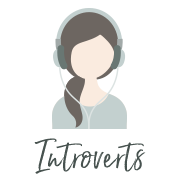What to Eat When You’re Feeling Wiped Out & Need Energy
/Today's guest post is from Jess Cording, registered dietitian, and health coach. She's been on the blog before to help us cut back on caffeine (without losing our minds) and how to meal prep when you work from home. Staying healthy and sane as an entrepreneur is so important to me, so I love having Jess share her tips!
Sleep deprivation is something too many of us are familiar with.
I’m a dietitian and health coach who works with people in the corporate setting as well as with entrepreneurs and aspiring entrepreneurs trying to squeeze in life and work with their passion projects. For many of us, late nights and early mornings are routine.
I’ve struggled with this too!
It’s so tempting to sneak in one last tweet, one last edit, one last email—naturally, this leads to an hours-worth (at least!) of extra stuff that really could have waited for the next day. Waking up early to work out before diving into a crazy day has many benefits, but can also cause us to skimp on quality sleep time.
Between hectic schedules, work and life stress (no, there is no such thing as balance), and non-stop electronic use, many of us just laugh at the idea of getting those recommended 7-8 hours a night.
Sure, we KNOW that adequate shut-eye is key to overall mental, emotional, and physical health, but almost 30 percent of adults reported sleeping less than six hours a night, according to data from the National Health Interview Survey.
Aside from feeling wiped out and dealing with the strain on our work performance and relationships, sleep deprivation can cause hunger hormones leptin and ghrelin to go all out of whack.
Here’s how that works: Leptin controls our perception of fullness, and our levels dip when we’re short on sleep. Ghrelin, which regulates our perception of hunger, however, spikes. That means that when we’re tired our hunger cues are amped up but we’re less in tune with feelings of fullness.
The result: a day of hanger and insistent cravings for foods we may usually avoid—especially stuff that’s high in carbs, fat, and sugar since our body recognizes those foods as quick sources of energy.
Rather than try to white-knuckle it all damn day, choosing satisfying, nourishing foods can help you stay on track and awake.
Do Small, Frequent Meals
Aim for a combo of protein and complex carbs along with some healthy fats—these guard against a sugar spike-and-crash. Pack in lots of nutrient-rich veggies and fruits to give your body fuel to keep you going.
A few healthy meal ideas:
A slice of whole grain toast with avocado and an egg. Not doing grains? Try sweet potato toast.
Oatmeal with ground flax or chia seeds, blueberries, and chopped nuts or nut butter
A frittata or vegetable omelet with a side of roasted potatoes or fruit
A spinach salad with chicken, mixed veggies, and lentils, dressed with oil and vinegar
Baked fish with sauteed greens or salad and roasted sweet potato, cooked beans, or a whole grain like brown rice.
Need some snack inspiration? Try:
Sliced veggies and hummus or guacamole
1 hard-boiled egg and a piece of fruit
A baked or steamed sweet potato with nut butter or tahini
A piece of fruit and a tablespoon of your favorite nut butter
1/4 cup of trail mix
1 ounce of cheese and 1/2 cup of grapes or other fruit—try brie or goat cheese with berries!
Plain Greek yogurt with cinnamon and a tablespoon of chia seeds, ground flax, or hemp hearts
Skip The Sugar
The sweet stuff is not going to help you keep it together. Sure, you may experience a short-lived sugar high, but you’ll come crashing right back down.
If you absolutely can’t get a craving for something sweet out of your mind, try having a small amount in the context of a meal or snack that also has some protein and/or fat to slow digestion and keep you on an even keel. For example, have some dark chocolate chips in plain Greek yogurt or with a serving of nuts. Another of my favorite weird-is-good combos: cheddar cheese and a square of dark chocolate.
Go Slow With Caffeine
Overloading on java can set you up for a jittery day.
Instead, have an 8 to 12-ounce cup in the morning and then one more mid-morning or around lunchtime if you’re struggling. To avoid messing up your sleep cycle, cut yourself off after 2 pm.
Another thing to try: work in milder sources of caffeine, such as black or green tea and matcha.
Hydrate Like It’s Your Side Hustle
Sleep deprivation can make you feel sluggish and causes dehydration. Give your tired cells plenty of the water they need to do their work of taking care of you.
For flavor, add cucumber, lemon or lime slices. Seltzer is another great option if the bubbles make it more satisfying. Water-rich fruits and veggies like tomato, lettuces, cucumber, celery, and watermelon are awesome ways to boost your intake.
Treat Yourself
No, that doesn’t mean reach for the donuts—what I’m talking about is truly pampering yourself.
On a day you’re exhausted, let yourself spend a little extra money on, say, that favorite healthy salad, or the stupid-expensive yogurt you love but usually talk your self out of.
Do you suffer from sleep deprivation & constantly feel exhausted?
What's the biggest reason that holds you back from getting more sleep?
Share in a comment below!
About Jess Cording
Jessica Cording, MS, RD, CDN, is a registered dietitian, health coach, and writer with a passion for helping others experience a happier, calmer life and a balanced relationship with food. Through her writing, consulting, public speaking, and counseling, she works with individuals, corporations, healthcare companies, food and lifestyle brands, and the media to help make drama-free healthy living approachable and enjoyable.
Need some lunch inspiration? Jess created five day's worth of delicious make-ahead lunches to make it even easier to eat well on a busy day.











